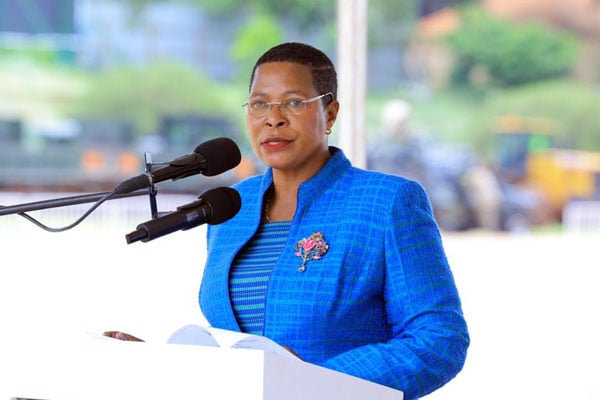What’s in the Budget for ordinary Ugandans?
What you need to know:
- Health. Without paying bribes and personally knowing some medical workers, they have no chance whatsoever of getting medical services from these hospitals. Ugandans who dare go to such government health facilities do so at their own peril.
Mr Aboce Nyeko is a resident of Opidi-Lwala village, Omoro District, the place of my birth. He married Akumu Lameny in the 1960s. They bore children and lived happily together. Mr Nyeko was a progressive farmer who specialised in cotton/tobacco growing as well as livestock rearing. He lived with his family in his ancestral home until the war between the Lord’s Resistance Army and government forced them to relocate to Cuda village, Gulu Town.
Mr Nyeko and the family survived the war but have failed to survive the misrule of NRM. Three years ago, Akumu was attacked by stroke and rushed to Lacor Hospital. This hospital was founded by Catholic missionaries, Drs Lucille and Corti, a married couple, in the late 1960s. Lacor Hospital used to offer some of the best medical services in the country.
However, due to the rot in government hospitals, Lacor is currently overwhelmed with patients. This has resultantly outstretched its capacity and compromised quality.
Therefore, Akumu was prematurely discharged from the hospital and sent to die at home. Her family couldn’t do much to save her life. They couldn’t afford to take her to Gulu Independent Hospital, Nakasero Hospital or International Hospital Kampala, let alone flying her to Nairobi, Johannesburg or London to get first class treatment. Her condition condemned her to death. In the latter part of 2018 she painfully died at their home in Opidi-Lwala.
Barely a year after her painful death, her husband has seriously fallen ill. Mr Nyeko’s bladder has failed. He can’t pass urine. A surgical procedure was done to correct this problem. Consequently, a catheter was inserted through his bladder to collect urine and pass it out. Mr Nyeko needs very close medical attention.
But Lacor Hospital discharged him prematurely with the catheter in his belly. The hospital is absolutely overwhelmed by patients. They need space to handle more serious cases. Mr Nyeko can go home and his situation is managed by relatives.
Mr Nyeko and his family couldn’t have remotely considered going to the regional referral hospital in Gulu or the national referral hospital, Mulago. Both referral hospitals suffer from comprehensive system breakdown. Without paying bribes and personally knowing some medical workers, they have no chance whatsoever of getting medical services from these hospitals. Millions of Ugandans who dare go to such government health facilities do so at their own peril.
On the other hand, Ms Nancy Birungi is a young single mother with five children. She lost her husband in a motor accident many years back.
Ms Birungi earns a living by vending clothes and shoes in Kamwokya market in Kampala. Last year, two of her sons, Elvis and Felix, passed with flying colours to go to secondary school. Through her small business, Ms Birungi educated her children up to P7. But her earning is so meagre to support her children’s secondary education.
Elvis and Felix, two brilliant young men with all the promise in life, now face an uncertain future characterised by helplessness and despair. They lay no claim to a bright and prosperous future. Their dreams and aspirations are crushing before their very own eyes. But, Elvis and Felix are just two of thousands, if not millions of young people facing an uncertain future because of lack of funds to give them the education required for a better future.
Ms Birungi also is just one of hundreds of thousands of young single mothers who are facing the dire consequences of misrule and unprecedented breakdown in the provision of social services. When they fall sick, they will be faced with the stark choice of going to broken health centres. Their children go to UPE schools that offer no chance for transition to secondary and tertiary education.
Thus, they would never be professionals such as lawyers, medical doctors, engineers, etc. like the children of the rulers.
Many of them eke a living on the land, through subsistence agriculture, using old fashioned rudimentary tools. But every year, the government presents projections of its revenues and expenditures in trillions of shillings. Allocations are also done in trillions to the different sectors. Health, education, infrastructure, agriculture, ICT, security, poverty alleviation, etc.
In the final analysis, however, these allocations remain mere allocations, lacking the force of actions that can transform people’s lives. This is the tragedy of Uganda.
Mr Mugabe is a member of the Alliance for National Transformation party
[email protected]




